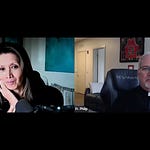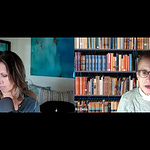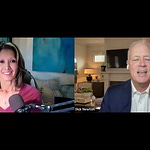In June 2020, one of the congregants at a church in the Bay Area was invited to the pulpit where this member ended a brief talk by saying, at the current moment, black lives matter more than all lives. As one can imagine, given the heightened tension around racism in the country that summer, that sentiment was in essence a political statement and hence appreciated by some and unnerving to others, including myself.
In my opinion, it was the first time politics was brought into the hallowed walls of the church. It was the reason I left that church. Now years later, pastors seem emboldened about their political stance as many share relentlessly on social media. Is this new? No. Pastors Billy Graham and Tom Skinner famously embedded political sentiment in their sermons.
Graham believed it was a person’s civic duty to engage in political action. “I feel that we are going to have to meet our political obligations as Christians and make our voice known if America is to be preserved with the type of Christian heritage that has given us the liberties we now enjoy,” he wrote. Skinner believed social justice had to be part of evangelism.
What does that civic duty toward political action in the context of Christianity look like? Why does social justice need to be part of evangelizing the good news?
I recently had the pleasure of speaking with Vincent Bacote (pronounced Bay-coat), Professor of Theology, and Director of Center for Applied Christian Ethics at Wheaton College to have that discussion. As it says on his profile page, he likes to build bridges between faith and life, such as political life. His book: The Political Disciple: A Theology of Public Life explores civic duty as part of following Jesus. As a Christian ethicist, Vincent’s job is to articulate how Christian moral principles are applied to every day life, including political life. In other words, how should Christian moral principles be viewed as we consider public policy (e.g. - if we abide by the 10 commandments, should we also support the hanging of them in public schools?).
During the second half, which starts at around 1:00:00, we dive into race and theology. This is where we discuss and debate why social justice should be part of being an evangelical Christian. Vincent wrote a book: Reckoning with Race and Performing the Good News, in which he advocates the recognition of racial injustices as part of spreading the good news. He also produced a recently-released documentary called Black + Evangelical, that profiles black evangelicals and their struggles integrating into white Christian churches circa 70’s-90’s. It’s extremely well done as it recognizes many black voices that were instrumental in creating awareness of the lingering racism inside the churches throughout the decades post the Civil Rights Act of 1964.
The conclusion of the documentary is that racism still exists and white evangelicals have a moral obligation to take action on behalf of marginalized people in order for healing to continue. Dr. Joy Moore admits that despite achieving success as a black president of a predominantly white Christian seminary, “the battle isn’t over.” Historian Jemar Tisby says, “This dynamic still exists of black Christians being in white evangelical spaces and being a hyper-minority.”
This is a stance I don’t agree with because the people profiled in the documentary did the hard work that the black community benefits from today. It is why Dr. Moore was elevated to her post. Yes - racism still exists, just like bigotry and sexism exists across all races. People experience racism and that is a problem. But it’s incidental. The systemic racism against blacks - built into policies of the past - are largely if not entirely gone. In fact, the programs put into place to recognize minorities, like affirmative action, have been so successful, they are now viewed as reverse-racism against certain other minorities. Famously, the Supreme Court struck down Harvard’s affirmative action program because it discriminated against Asians and lacked a meaningful “endpoint.”
So what is the endpoint? This is what I asked Vincent (around 1:20). At what point would it be considered satisfactory that racial reconciliation has been achieved and how is that measured? We discuss this as well as the (to use the au courant word) weaponization of our faith: using Christian precepts for political gain. In other words: are both the Left and Right side of the political divide putting country before God?
Vincent is unafraid of having conversations with people he disagrees with. Like me, he welcomes it as a healthy way to move forward. I knew that before we chatted because he spoke on a panel titled “How to have difficult conversations when you know you disagree.” As expected, our conversation was not confrontational but you might say boringly conciliatory. (I know people like spicy discussions. But I don’t believe that’s how you harmonize differences.)
You can follow Vincent on his X account here: https://x.com/vbacote
Interview coverage:
00:00 - Christian Journey - from biology, to Navigators to Abraham Kuyper to becoming head of the Applied Christian Ethics program at Wheaton.
9:15 - What is Applied Christian Ethics?
12:00 - Summing up his theology: Moderately reformed (Calvinist wing); Sacramentally sympathetic (Holy Spirit shows up as we partake the Eucharist); Charismatically sympathetic (believes all the gifts are operative).
16:00 - How Wheaton is described with regards to its political and cultural identity.
19:30 - How does Applied Christian Ethics get taught? Applying Christian moral principles to moral dilemmas? Creating the bridge between Christian beliefs and public life.
20:52 - How to apply Christian ethics in the corporate board room?
23:10 - The reasons to put up the 10 Commandments in schools and the needed discourse around the purpose of moral virtues displayed.
30:55 - Seeing the Trolley problem through the lens of the Bible.
34:50 - The language of predestination and election can be a Trolley problem.
37:11 - What’s the purpose of the text around pre-destination? Romans 8-11.
39:00 - An apologist and an ethicist and a Rabbi go to a bar…
40:05 - An apologist defends their faith; an ethicist applies their faith. How does an apologist and ethicist differ in their evangelical approach?
44:15 - Ethicists look at moral dilemmas and advocate policy. Do ethicists feel the responsibility to advocate certain policies in the public sphere?
47:00 - Where Christian ethicists have gotten it right and wrong in the public sphere.
51:45 - Christianity is being weaponized for a political agenda.
56:36 - Do not let your political party be your identity.
1:00:00 - Christian Nationalism can be applied to both the Left as much as the Right.
1:07 - Politics has reached a religious fervor
1:09 - Silicon Valley Christian revival. Is it real?
1:12 - Reckoning with race: Dissonance, distressed, discovery.
1:20 - Evangelical movement has an “ought.”
1:21 - Racism exists. The question is whether it’s incidental or systemic and at what point will government policies to achieve social justice meet their goal and how is that measured?
1:27 - Still having a problem of people looking at “others” as different.
1:30 - It’s unclear where the endpoint is.
1:35 - The irony of two churches. One church that talks about the virtues of social justice is largely white; the other church that never talks about race is largely diverse.
[Note to viewers/readers: I enjoy speaking with people I disagree with in order to find common ground. Please reach out if you’d like to have a conversation or make suggestions.]










